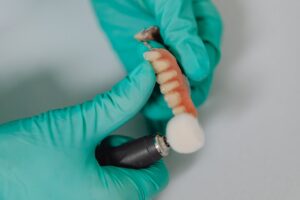

Unfortunately, many children will find themselves grappling with an eating disorder at some point in adolescence. Once you realize that your young boy or girl is struggling with this issue, it’s important to learn what you should do in order to facilitate recovery and restore your child’s holistic wholeness. Luckily, there are several strategies you can deploy to generate these restorative outcomes. Here are three of them:
1. Secure Professional Help
The first and most important step in helping your child heal from an eating disorder is ensuring that she or he attains professional help. This step is imperative because eating disorders are clinical diseases and they necessitate that your child attain ongoing, involved care from licensed professionals. In a treatment facility such as Reasons Eating Disorder Center, your child will gain access to physicians, family therapists, psychologists, registered nurses, and registered dietitians.
Be sure to do thorough research on treatment facilities before enrolling your child into the rehabilitation center. This step is important because each facility may offer unique services that prove particularly beneficial in light of your child’s temperament and proclivities. For example, some recovery facilities will feature creative art and somatic therapies like dance movement therapy, art therapy, creative writing, music therapy, and drama therapy.
2. Educate Yourself about Eating Disorders
Outside of securing professional help for your child, educating yourself about eating disorders is one of the most important, effective strategies you can implement. This technique works because it empowers you to attain a clearer, deeper understanding of some of the underlying causes leading to eating disorders as well as the unique challenges that your child may face throughout each stage of recovery. For example, Kids Health notes that there are specific physical activities that might put a child at greater risk for developing an eating disorder. Some of them include wrestling, ice skating, ballet, gymnastics, and cheerleading.
3. Maintain a Non-Judgmental Approach
As you help your child deal with and recover from the eating disorder, be sure to maintain a non-judgmental approach. Adopting this approach is important because when an individual perceives that their behavior is being interpreted as immoral, regressive, or somehow “bad” by another person, they will oftentimes withdraw. Because sustained interaction with your child is necessary to truly help her or him, you do not want to exhibit behaviors that increase the likelihood of your child keeping emotions bottled up inside. Understand that a supportive, non-judgmental outlook would involve the use of statements like “I love you no matter what” and the omission of phrases like “Everyone else is able to eat in a balanced way. Why can’t you?” Note that there is research evidence which indicates that the non-judgmental approach to dealing with eating disorders engenders higher recovery rates.
If your child has an eating disorder and you want them to recover fully, know that you can play an instrumental role in facilitating the desired outcome. To get your child on the road to holistic healing and wholeness right now, use the strategies and systems outlined above!


